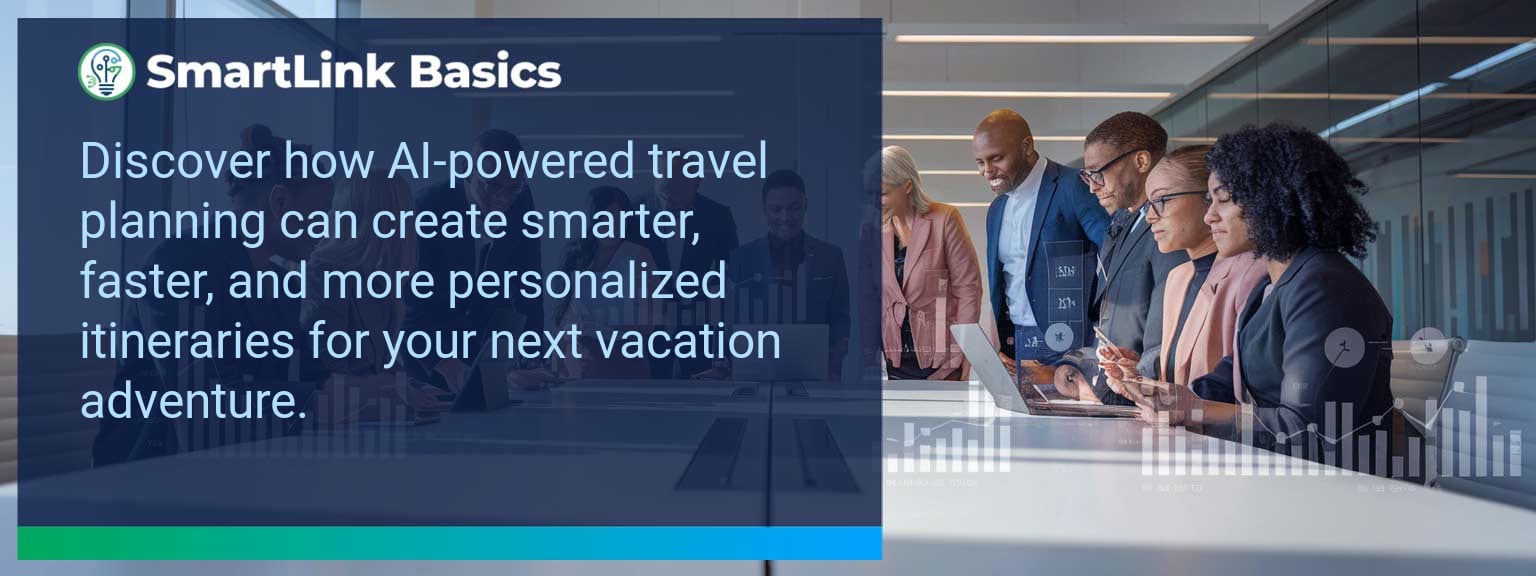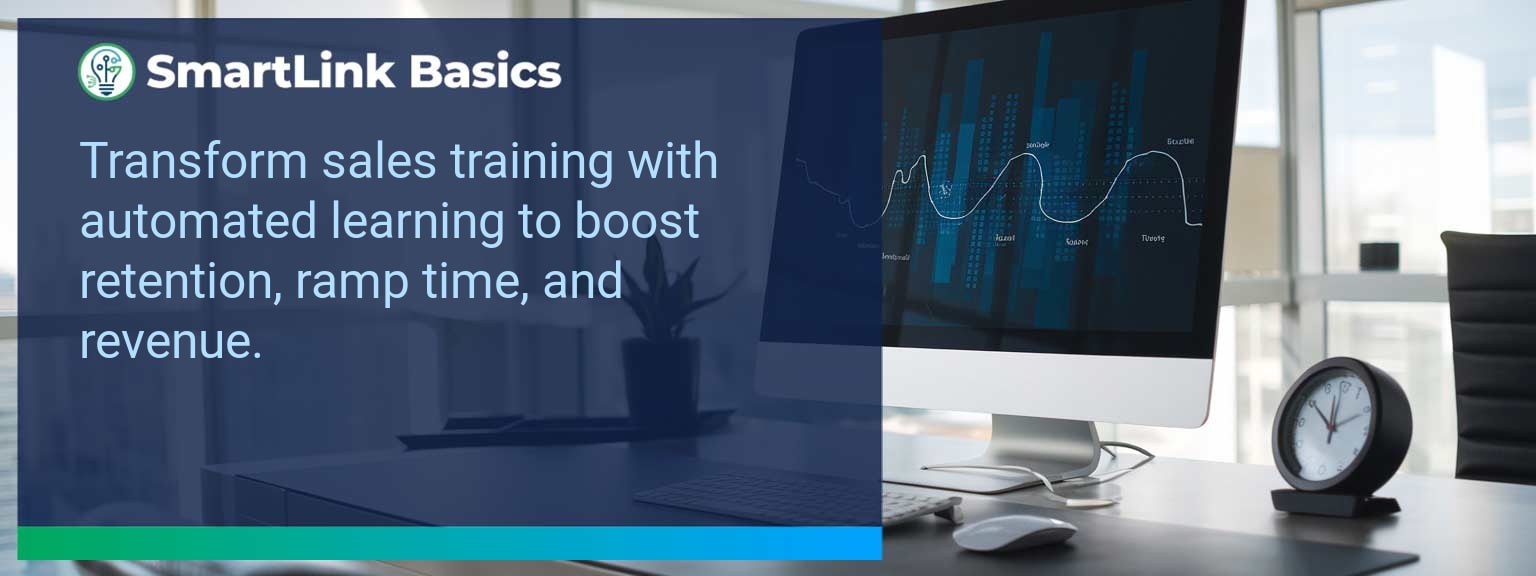Global consulting firm McKinsey reports that companies using AI for operational decision-making experience up to a 30% increase in efficiency. For sales leaders and decision-makers, AI-powered travel planning isn’t just about leisure — it’s about maximizing high-value travel days, optimizing meeting routes, and ensuring seamless logistics that protect valuable in-person engagement time. At SmartLink Basics, we focus on translating emerging AI capabilities into real business advantage.
In this article, you’ll see how AI travel assistants, smart trip planners, and personalized travel itinerary tools are changing corporate and leisure travel. You’ll gain a framework for overcoming traditional planning roadblocks, learn how machine learning in travel creates precision-driven itineraries, and uncover a 90-day adoption approach that organizations can operationalize quickly.
- AI converts complex trip planning into automated precision workflows.
- Machine learning optimizes routes, timings, and costs simultaneously.
- Integrated AI assistants manage bookings, re-routing, and travel data.
- Eliminates common manual planning delays and errors.
- Delivers personalized, context-aware itineraries for business or leisure.
Common Roadblocks In Traditional Travel Planning
Manual travel coordination often forces professionals into reactive adjustments rather than proactive optimization. Common issues include misaligned schedules, prolonged booking cycles, and fragmented supplier information.
For sales teams, every inefficiency in travel planning can translate to missed opportunities. A delayed connection can mean a lost client meeting or reduced selling time. In traditional models, rebooking is often resource-heavy, especially when dependent on human intervention.
An example: a regional sales director planning a multi-city client tour may spend hours consolidating separate flight, hotel, and ground transfers, only to have last-minute changes disrupt the entire plan.
Actionable insight: Audit your current travel planning process to map touchpoints that could benefit from automation before introducing AI systems.
Leveraging Artificial Intelligence For Smarter Itineraries
AI-powered travel planning platforms integrate flight, lodging, and local transportation data to deliver optimized, dynamic itineraries. Algorithms evaluate constraints in real time, adjusting routes based on variables like weather disruptions or meeting reschedules.
Smart trip planners powered by machine learning go beyond basic search tools. They act as AI itinerary generators, learning traveler preferences, budget thresholds, and logistical patterns over time.
Consider a sales executive using an AI travel assistant that automatically schedules client visits in optimal order, minimizing transit times while aligning to each client’s availability.
Actionable insight: Look for AI trip planning tools with API integrations into your CRM and calendar systems to ensure itineraries align seamlessly with revenue-generating activities.
Benefits Of Automated Personalized Trip Design
When AI systems handle route creation and resource allocation, travel planning becomes a strategic function rather than a tactical chore. Benefits include cost optimization, minimized downtime, and enhanced traveler experience through personalized itineraries.
Vacation planning with AI also demonstrates capability cross-over — the same systems used for leisure can be tailored for corporate travel compliance and budget governance.
For instance, AI can automatically approve lodging within company policy limits while selecting locations that minimize commute to scheduled meetings.
Actionable insight: Use AI’s pattern recognition to identify cost savings across recurrent travel routes without sacrificing traveler comfort or productivity.
The Next Frontier Of Travel Technology
Future AI-powered travel planning tools will move toward predictive itinerary shaping — anticipating requirements before travelers manually declare them. This will include multi-device AI travel assistants syncing across phone, laptop, and wearables to adjust in real time.
Integration with augmented reality may allow travelers to navigate foreign cities with AI-guided overlays, reducing friction in complex environments.
Example: A predictive AI system detects a likely meeting overrun and proactively shifts a dinner reservation without prompt.
Actionable insight: Begin building your technology stack with modular AI trip planning tools that can scale features as predictive and immersive capabilities mature.
Metrics That Matter
| Category | Metric | Definition | Target |
|---|---|---|---|
| Leading | Itinerary Automation Rate | Percentage of trips fully generated by AI without manual changes | 85% |
| Lagging | Travel Cost per Revenue Day | Total travel expenses divided by days actively selling on the road | 15% reduction |
| Quality | Traveler Satisfaction Score | Post-trip ratings from travelers on convenience, comfort, and reliability | 4.5 / 5 |
Get the 90-day plan, coaching rubric, and dashboard template to operationalize AI in your enablement program.

Positioning AI Travel Tools As Revenue Multipliers
AI-powered travel planning now bridges operational efficiency with strategic sales impact. This article outlined common roadblocks, demonstrated applied AI capabilities, and mapped measurable gains from integrating smart trip planners and personalization engines. Sales leaders ready to operationalize travel automation can access AI-driven sales enablement resources from SmartLink Basics to accelerate adoption. Begin implementing now to reclaim selling time and protect high-value customer engagements.








